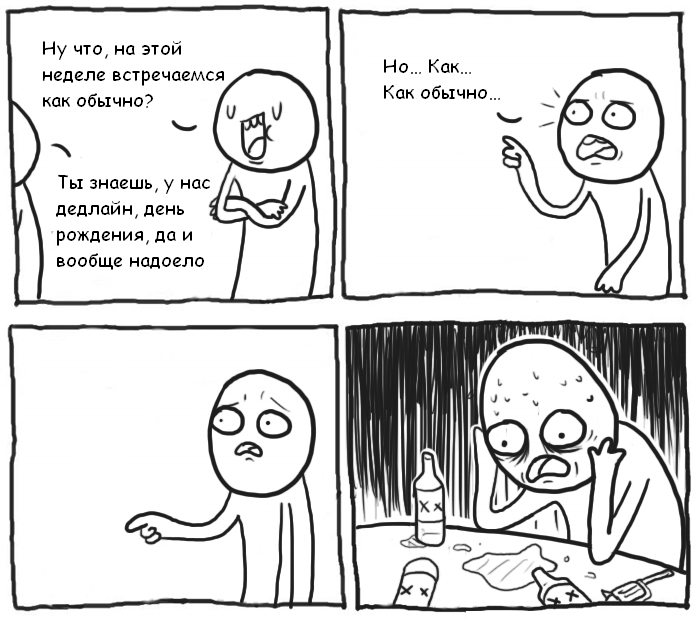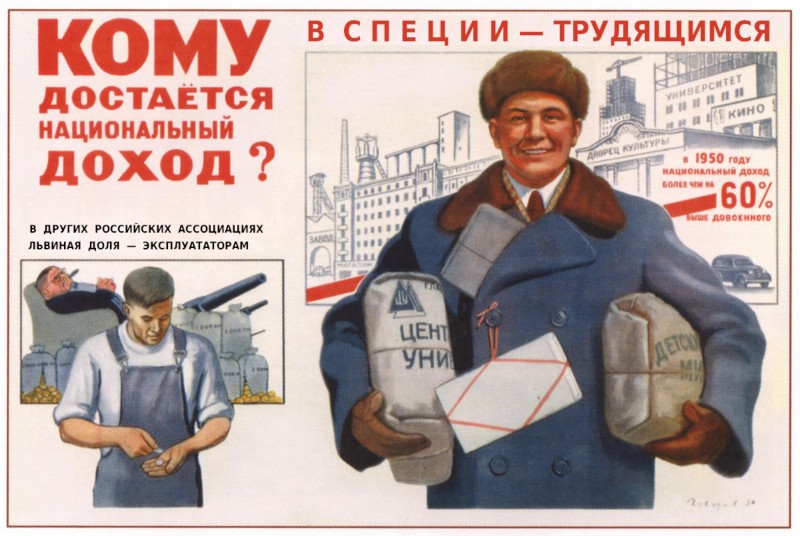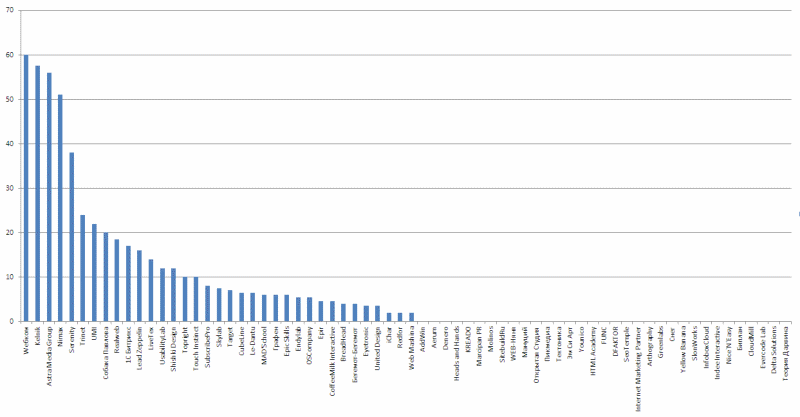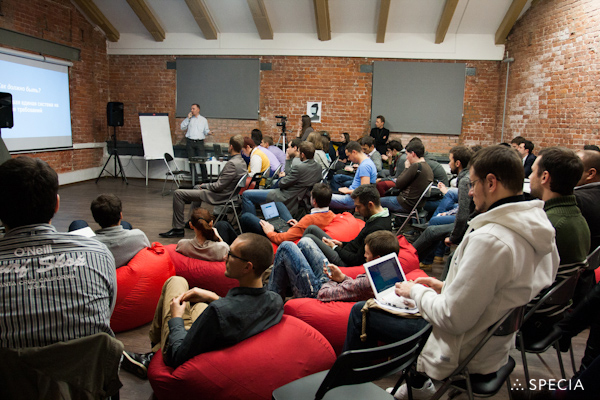How and why are web studios in Petersburg friendly?
On December 6, 2013, the 70th company joined SPETSIA (collaboration of St. Petersburg digital agencies). Among our participants are the largest agencies of St. Petersburg (Nimax, Kelnik, RealWeb, Trinet, Astra Media Group, Serenity, Webcom and many others), large food companies (1C-Bitrix, UMI, LiveTex), mobile developers (Touch Instinct, Behemoth Behemoth), educational structures (Graphene, Epic Skills, HTML Academy), as well as many web studios ranging in size from 2 to 20 people.
The activities of the Spices for more than a year, and we are not quite an ordinary association. Probably quite unusual. To find out which hypotheses about the formation of a regional association turned out to be wrong, which ones worked, which distinguishes SPICE from other associations, and here, crowdsourcing, you are welcome to register.
We hope that our experience will help you organize yourself in your region .
')

In general, in the market of all kinds of associations - RAEC, AKAR, AIA, AIR ... Why do we need another, purely regional?
First you need to answer another question - why do we need associations? By and large, there are only two answers, and they are not mutually exclusive:
Such tasks include representing the interests of the industry in a dialogue with the state and other structures, increasing the volume of the market, solving the problem of personnel hunger and so on.
The stage of “parties by interests” sooner or later pass all regions - Siberia (Novosibirsk, Barnaul), Nizhny Novgorod, Ulyanovsk. Petersburg also took place in the first half of the 2000s, when veterans of web development knew each other well. However, at some point it is annoying to hang out on interests, and if there is not one or two “locomotives” (in Novosibirsk, for example, this is Alexey Ramensky), the parties disappear and the companies pupate. St. Petersburg completely pupated somewhere in 2008.

Some companies at various times began to reach the realization of the need to solve problems together. For example, to fight for program students, who are already from the fifth year, sweeping clean sweeping large software developers (they are enough in St. Petersburg). Or increase customer competence to reduce project risks.
Habitual and existing associations are not suitable for this for a number of reasons.
At the end of 2012, when the Mayan calendar ended, and the world survived, representatives of six companies gathered for a secret meeting to discuss a plan to seize the world. We decided that we want to join forces, but we don’t like the naphthalene vertical structure of classical associations.
And we decided: to get a different result, you need to do other actions. So we began to build socialism. From each according to his ability, to each according to his work.

The principle of crowdsourcing is in the scheme of creating a community, we decided to try to do without the classical vertical model and membership fees. (Looking ahead - not everything worked out.)
We discussed the key rules of the game:
It so happened that the most obvious useful things are training events (both client and inter-studio). Now in the community of these activities most of all. Therefore, we decided that the organization of events and other useful things we will evaluate in points. Each quarter is calculated the amount of points for the last calendar year. Who scored the most, and that dad.
Different companies conducted several first pilot events: Astra Media Group - kicker tournament, Nimax - project management and web studio sales seminars. It seemed to us that the wheels start spinning. Therefore, we came up with the name SPECIA ( the covenant of the St. Petersburg digital agencies), also SPECIA (St. Petersburg, with the ommunity of creative a gencies), and Nimax made a cool simple logo.

In May, the “First Congress of the Spices” took place, which brought together representatives from about 50 market companies. On it we discussed the rules of the game and the prospects for such collaboration. By the first congress, the first version of the SPICE Regulations was written and points were calculated for the first few months of cooperation.
Since we are building a live organization, we prepared for mistakes in advance. And the whole construction of the commonwealth grew out of hypotheses put forward and confirmed and refuted. The most important lessons we simply must share.

At first, we thought that the companies of the commonwealth should, in orderly rows, under one banner, invest their efforts in achieving a common goal. After several months of multilateral negotiations and brainstorming, it turned out that we all have different development strategies and different interests. And with each company they change over time: the unimportant becomes important and vice versa.
Therefore, only two options are workable:
Actually, this is the second side of the coin about the absence of a common goal. We immediately laid in the structure of the Commonwealth the lack of qualification for entry. Discussed:
The only requirement in SPICE is the presence of a legal entity and an office in St. Petersburg, since this is a community of companies, not individual professionals.
The main concern related to the lack of qualification is that customers will not take seriously the community of companies with different quality of the process and result. Including because they will not see in it values for themselves, as a tool for selecting a contractor. So far, this fear does not even come close.
We also bypassed this problem by introducing a system of levels of participation in the community, depending on the number of points scored per calendar year:
Accordingly, any company that ceases to do anything within the framework of the Spices is as easily washed out of the community as it entered into.
When we introduced this division into participation levels, we could not even imagine that we were so clearly in the law of the universe. We thought that the distribution of points would be more or less even.
In fact, it turned out to be the purest "long tail" , as in commits on GitHub or edits on Wikipedia.

After the fact, this is not surprising. Actually, this is another argument in favor of an open regional association. If there are 70 companies in the association, there will be 5 of the most active participants and a dozen more medium-active ones - this is already a tangible resource. If there are only 10 of the region’s strongest companies in it, only one of them will pull the whole movement, and another 3-4 will do at least something.
Breaking the "old world" of associations with the chairmen and other secretaries, we assumed that we could taxi the administration of the community in the spirit of "wikinomics" on the resources of our own companies. That working groups will be coordinated by the most active participants in working groups, for example.
In our case, it did not work - all companies have too much of their own load, and over time the motivation weakens. Because of this, we have suspended the activity of the majority of initially active working groups.
Therefore, we hired a wonderful SPICE administrator, Tanya Artemyeva, who deals only with the affairs of the community. She does not have her own office, but she gradually works in the offices of various companies participating in the community, getting to know them better from the inside, as well as stimulating the activity of companies.
Breaking the "old world" of associations with the chairmen and other secretaries, we assumed that we could get out without membership dues. We tried to do “point fundraising” for individual events - for example, for organizing an SPICE booth at Digitale and other industry conferences. It did not work - it is difficult to collect money, especially when there are many such “points”. It became clear that one could not do without a permanent budget (including timely payment for the work of the administrator, permanent advertising, etc.).
Therefore, since the fourth quarter of 2013, we have introduced membership fees, but in order not to build entry qualifications, and bearing in mind the “20% -80%” scheme, we decided to try at first glance an insane scheme:
That is, not paying the largest membership fee guarantees getting into the COP, and getting into the COP guarantees the biggest dues. Who does the most, he also pays the most. From this, it smells like Sweden or Norway.
Membership fees are also converted to points. So far, the system is only taking off, but it is already obvious that it works an order of magnitude better than the “point fundraising”.
At first, we assumed that the decision-making board should be numerous (from 7 to 11 people) in order to rule out the possibility of cartel collusion by top companies. Then wedecided that there was nothing wrong with the cartel arrangement, and reduced the composition of the CA to 5 companies.
There were two reasons for the decision:
The turnover of power laid down in the structure of the community guarantees the impossibility of resting on its laurels, once standing at the origins of the regional movement.
So, in December 2013, the company includes 70 companies, of which about 50 showed any activity (were present or actively participated in educational activities or other PR activities of SPICES). The Commonwealth has one permanent functionary - the administrator.
Events held (we can tell about them in more detail):

Already twice, with the support of SPICE, the Tagline version of web studios and agencies of St. Petersburg has been released, and the company’s SPACE icon has appeared in the federal ratings .
An adaptive commonwealth website is drawn and laid out. Soon we will collect and run.
More than 5000 visitors to the page stub since June 2013.
More than 400 participants (owners and specialists of agencies and studios of St. Petersburg) in a closed group on Facebook.
If you are interested in our experience - ask questions, tell you about everything.
Natalya Sizova , Project Manager, ex- Cassiopeia
Alexey Novikov , he's Novikov , Lead Zeppelin Development Director
Anton Kovalevsky , CEO, YellowBanana
Irina Titarenko , CEO Webcom
Leonid Nikolaev , Breadhead Development Director
The activities of the Spices for more than a year, and we are not quite an ordinary association. Probably quite unusual. To find out which hypotheses about the formation of a regional association turned out to be wrong, which ones worked, which distinguishes SPICE from other associations, and here, crowdsourcing, you are welcome to register.
We hope that our experience will help you organize yourself in your region .
')

Reasons for creating
In general, in the market of all kinds of associations - RAEC, AKAR, AIA, AIR ... Why do we need another, purely regional?
First you need to answer another question - why do we need associations? By and large, there are only two answers, and they are not mutually exclusive:
- just to hang out
- together to solve problems that are not solved individually.
Such tasks include representing the interests of the industry in a dialogue with the state and other structures, increasing the volume of the market, solving the problem of personnel hunger and so on.
The stage of “parties by interests” sooner or later pass all regions - Siberia (Novosibirsk, Barnaul), Nizhny Novgorod, Ulyanovsk. Petersburg also took place in the first half of the 2000s, when veterans of web development knew each other well. However, at some point it is annoying to hang out on interests, and if there is not one or two “locomotives” (in Novosibirsk, for example, this is Alexey Ramensky), the parties disappear and the companies pupate. St. Petersburg completely pupated somewhere in 2008.

Some companies at various times began to reach the realization of the need to solve problems together. For example, to fight for program students, who are already from the fifth year, sweeping clean sweeping large software developers (they are enough in St. Petersburg). Or increase customer competence to reduce project risks.
Habitual and existing associations are not suitable for this for a number of reasons.
- They are federal and say that they are solving federal tasks. And most of us have local problems.
- They talk about solving problems. In fact, companies pay membership fees and wait for them to bring a decision on a dish with a border. At best, they meet twice a year in committees. Efficiency is clear, what.
- They are suitable only for more or less large companies. And what about young, ambitious, promising
dynamic full-cycle agencies?
General principles
At the end of 2012, when the Mayan calendar ended, and the world survived, representatives of six companies gathered for a secret meeting to discuss a plan to seize the world. We decided that we want to join forces, but we don’t like the naphthalene vertical structure of classical associations.
And we decided: to get a different result, you need to do other actions. So we began to build socialism. From each according to his ability, to each according to his work.

The principle of crowdsourcing is in the scheme of creating a community, we decided to try to do without the classical vertical model and membership fees. (Looking ahead - not everything worked out.)
Crowdsourcing (eng. Crowdsourcing, crowd - “crowd” and sourcing - “use of resources”) - transfer of some production functions to an indefinite circle of people, solving socially significant tasks by volunteers, often coordinating their activities through information technologies.
We discussed the key rules of the game:
- Commonwealth members develop themselves and develop the market.
- The most important thing is to do useful things.
- We are building a living structure in which the current activity of each company is assessed, and not its contribution at the start. No one should be "booked".
It so happened that the most obvious useful things are training events (both client and inter-studio). Now in the community of these activities most of all. Therefore, we decided that the organization of events and other useful things we will evaluate in points. Each quarter is calculated the amount of points for the last calendar year. Who scored the most, and that dad.
Different companies conducted several first pilot events: Astra Media Group - kicker tournament, Nimax - project management and web studio sales seminars. It seemed to us that the wheels start spinning. Therefore, we came up with the name SPECIA ( the covenant of the St. Petersburg digital agencies), also SPECIA (St. Petersburg, with the ommunity of creative a gencies), and Nimax made a cool simple logo.

In May, the “First Congress of the Spices” took place, which brought together representatives from about 50 market companies. On it we discussed the rules of the game and the prospects for such collaboration. By the first congress, the first version of the SPICE Regulations was written and points were calculated for the first few months of cooperation.
Refuted hypotheses
Since we are building a live organization, we prepared for mistakes in advance. And the whole construction of the commonwealth grew out of hypotheses put forward and confirmed and refuted. The most important lessons we simply must share.

Companies in the region cannot be motivated by a common goal.
At first, we thought that the companies of the commonwealth should, in orderly rows, under one banner, invest their efforts in achieving a common goal. After several months of multilateral negotiations and brainstorming, it turned out that we all have different development strategies and different interests. And with each company they change over time: the unimportant becomes important and vice versa.
Therefore, only two options are workable:
- A closed association in which companies having a common goal at a given point in time are united. The system works as long as this goal continues to split.
- An open association where each company operates in the most advantageous direction.
Lack of entry qualification is better than having
Actually, this is the second side of the coin about the absence of a common goal. We immediately laid in the structure of the Commonwealth the lack of qualification for entry. Discussed:
- property qualification,
- qualification by company size,
- qualification on the quality of work.
The only requirement in SPICE is the presence of a legal entity and an office in St. Petersburg, since this is a community of companies, not individual professionals.
The main concern related to the lack of qualification is that customers will not take seriously the community of companies with different quality of the process and result. Including because they will not see in it values for themselves, as a tool for selecting a contractor. So far, this fear does not even come close.
We also bypassed this problem by introducing a system of levels of participation in the community, depending on the number of points scored per calendar year:
- SPICE sympathizers (who did not score a single point and did not attend a single event) - they do not glow at all on the SPICE website;
- SPICE members (scored a small number of points);
- SPICE activists (scored an average number of points);
- Spices Coordination Council (scored the most).
Accordingly, any company that ceases to do anything within the framework of the Spices is as easily washed out of the community as it entered into.
20% of companies do 80% of cases and contribute 80% of resources
When we introduced this division into participation levels, we could not even imagine that we were so clearly in the law of the universe. We thought that the distribution of points would be more or less even.
In fact, it turned out to be the purest "long tail" , as in commits on GitHub or edits on Wikipedia.

After the fact, this is not surprising. Actually, this is another argument in favor of an open regional association. If there are 70 companies in the association, there will be 5 of the most active participants and a dozen more medium-active ones - this is already a tangible resource. If there are only 10 of the region’s strongest companies in it, only one of them will pull the whole movement, and another 3-4 will do at least something.
Requires dedicated administrator
Breaking the "old world" of associations with the chairmen and other secretaries, we assumed that we could taxi the administration of the community in the spirit of "wikinomics" on the resources of our own companies. That working groups will be coordinated by the most active participants in working groups, for example.
In our case, it did not work - all companies have too much of their own load, and over time the motivation weakens. Because of this, we have suspended the activity of the majority of initially active working groups.
Therefore, we hired a wonderful SPICE administrator, Tanya Artemyeva, who deals only with the affairs of the community. She does not have her own office, but she gradually works in the offices of various companies participating in the community, getting to know them better from the inside, as well as stimulating the activity of companies.
Membership fees required
Breaking the "old world" of associations with the chairmen and other secretaries, we assumed that we could get out without membership dues. We tried to do “point fundraising” for individual events - for example, for organizing an SPICE booth at Digitale and other industry conferences. It did not work - it is difficult to collect money, especially when there are many such “points”. It became clear that one could not do without a permanent budget (including timely payment for the work of the administrator, permanent advertising, etc.).
Therefore, since the fourth quarter of 2013, we have introduced membership fees, but in order not to build entry qualifications, and bearing in mind the “20% -80%” scheme, we decided to try at first glance an insane scheme:
- the coordinating council is obliged to pay the largest dues (15,000 rubles per quarter),
- activists are required to pay a small dues (3,000 rubles per quarter)
- participants and sympathizers are not obliged to pay, but they can.
That is, not paying the largest membership fee guarantees getting into the COP, and getting into the COP guarantees the biggest dues. Who does the most, he also pays the most. From this, it smells like Sweden or Norway.
Membership fees are also converted to points. So far, the system is only taking off, but it is already obvious that it works an order of magnitude better than the “point fundraising”.
Coordination council should include no more than 5 companies.
At first, we assumed that the decision-making board should be numerous (from 7 to 11 people) in order to rule out the possibility of cartel collusion by top companies. Then we
There were two reasons for the decision:
- see the graph above, it speaks for itself;
- stupid to collect 7 people to discuss any issue at times more difficult than 5 people.
The turnover of power laid down in the structure of the community guarantees the impossibility of resting on its laurels, once standing at the origins of the regional movement.
SPICE condition today
So, in December 2013, the company includes 70 companies, of which about 50 showed any activity (were present or actively participated in educational activities or other PR activities of SPICES). The Commonwealth has one permanent functionary - the administrator.
Events held (we can tell about them in more detail):
- General seminar for clients in August, which gathered about 60 people. For the summer lull - an excellent result. The speakers were representatives of nine companies.
- Joint visits to Moscow at the CMS Magazine conference and "Advertising '2013".
- SPICE internal seminars that consistently gather from 20 to 50 people: project management, sales, automation, HR, organization of events, and presentations

Already twice, with the support of SPICE, the Tagline version of web studios and agencies of St. Petersburg has been released, and the company’s SPACE icon has appeared in the federal ratings .
An adaptive commonwealth website is drawn and laid out. Soon we will collect and run.
More than 5000 visitors to the page stub since June 2013.
More than 400 participants (owners and specialists of agencies and studios of St. Petersburg) in a closed group on Facebook.
If you are interested in our experience - ask questions, tell you about everything.
Direct speech of the participants of the Spice
Natalya Sizova , Project Manager, ex- Cassiopeia
SPECIA is simply a unique product on the IT market that could not fail to appear. Have you heard about the universal information field? This is a repository of knowledge, accessible to all. It provokes such a phenomenon as similar thoughts appearing in the head of people in different places of our big planet. Just as Popov and Marconi almost simultaneously came up with the idea of the possibility of wireless data transmission at a distance, so the heads of several web studios had the idea to create a community uniting all the IT companies in St. Petersburg.
Alexey Novikov , he's Novikov , Lead Zeppelin Development Director
I was pleased by the fact that instead of pompous "plenary meetings" and "general meetings of members", really interested people share their experiences with each other, rather than spread sagging abdomens on the tables covered with red tablecloths in the presidium, talking about "future industry" and "development prospects Runet ".
Anton Kovalevsky , CEO, YellowBanana
We went to SPECIAL because of the fact that small digital agencies that do not have the opportunity (and interest) to join major associations, and not only want to develop, but are also vital.
It seems to me that the SPICE format is ideal for a small regional structure: high-quality mix of fan, knowledge sharing and business. In general, this spice gives flavor.
Irina Titarenko , CEO Webcom
SPECIAL - is a wonderful association of people who want to develop both themselves and develop the market. Our company joined one of the first in this community, since today there are few such organizations that are able to really do something and openly share their achievements and knowledge with each other for the common good. In the framework of the Spices, there are more events at which each company can learn exactly what is important to it today. And this is great.
Leonid Nikolaev , Breadhead Development Director
To be honest, I am convinced that SPECIAL is the best thing that has happened to us over the last year. Despite many other positive changes. The most important thing in this story is the possibility of communication and learning. I still do not fully understand how this works, but for me it is like a butterfly effect. Someone read a report at an internal seminar (and they in Spices are no less interesting than those of older brothers - this can be compared with the same CMSMagazine), someone just expressed some thought. But all this leads to very serious changes in the activities of, for example, our company. I think the same for others.
SPECIAL really active organization. Constantly something happens. And what is important - without departing from the stated principles. In my opinion, SPECIAL is particularly useful for middling (in terms of scale). You can quickly tighten weaknesses. SPECIAL events do not discuss how to negotiate with Digital Marketing Director of Megaphone, or how to sell the UX-strategy for 2 million. The real problems of real companies are discussed: staff motivation in the context of lack of resources, marketing at low cost, and the like.
Now about the facts. Thanks to Spice, we:
- found new partners
- found employees
- took a high place in Petersburg teglaine
- reorganized the company
- received several leads (unfortunately it did not work out any further)
- received an incredible amount of valuable knowledge
Source: https://habr.com/ru/post/205376/
All Articles